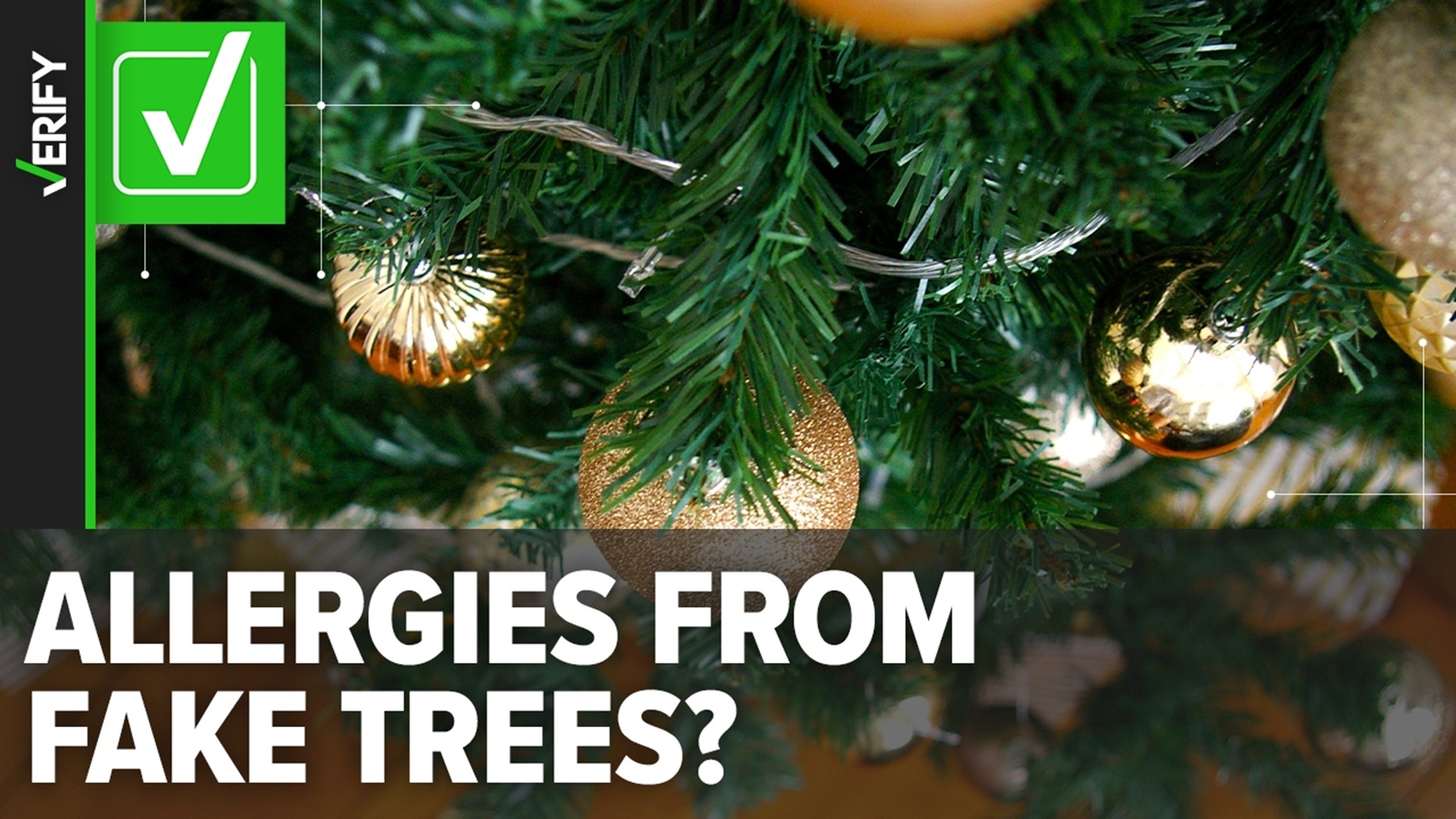Every year, tens of millions of Americans buy real and fake Christmas trees to decorate their homes for the holiday season.
Some people who suffer from allergies may turn to an artificial tree in hopes of relieving their symptoms.
But online posts claim your fake tree could still make you feel sick, triggering an allergic reaction that’s sometimes called “Christmas tree syndrome.”
THE QUESTION
Can artificial Christmas trees trigger allergies?
THE SOURCES
- UCLA Health
- The American Christmas Tree Association, a nonprofit organization
- The American College of Allergy, Asthma and Immunology
- Article written by Kara Wada, M.D., an allergy specialist at Ohio State’s Wexner Medical Center
- Article written by Randy Schueller, director of operations for Advanced Sinus and Allergy Center in Illinois
- Ochsner Health blog post written by Alegra Grieb, M.D.
THE ANSWER
Yes, artificial Christmas trees can trigger allergies.
WHAT WE FOUND
During the holidays, some people may suffer from an allergic reaction that’s informally referred to as “Christmas tree syndrome,” doctors say. It can be caused by both real and artificial trees.
Most people who have allergies when they are around a real Christmas tree aren’t allergic to the tree itself, since pine allergies are relatively uncommon, according to UCLA Health.
Instead, the microscopic mold spores that can be found on real Christmas trees, compounds called terpenes that give the trees their scent and pollen can trigger allergies.
Though artificial Christmas trees may be a better option, they can still trigger asthma and allergy symptoms.
Artificial trees can gather dust, mold spores and other allergens while in storage, UCLA Health and the nonprofit American Christmas Tree Association (ACTA) say.
Dust mites are “one of the most common triggers for respiratory allergies,” Randy Schueller, the director of operations for Advanced Sinus and Allergy Center in Illinois, says in an article. They can accumulate on artificial trees, lights and ornaments under certain storage conditions, he added.
Mold can grow on your tree if it is stored in a damp or humid area, Kara Wada, M.D., an allergy specialist at Ohio State’s Wexner Medical Center, wrote in an article.
Droppings that pests such as cockroaches leave behind on an artificial tree can also trigger an allergic reaction, according to Schueller.
In addition, our experts say materials used to manufacture artificial Christmas trees can cause sinus irritation or exacerbate asthma symptoms.
For example, inhaling particles from an artificial snow or flocking spray can trigger asthma attacks, Alegra Grieb, M.D., wrote in a blog post for Ochsner Health.
These tips from our experts may help prevent artificial Christmas tree allergies during the holiday season:
- Unpack your artificial Christmas tree outside. Then, vacuum or shake the tree before bringing it inside your home.
- Wipe artificial Christmas trees and ornaments with a soft, dry cloth to keep them free of dust.
- Use an airtight container or seal the box when packing your artificial Christmas tree away at the end of the season.
- Store your Christmas tree in a cool and dry place.
- Use common allergy treatments, such as nasal washes, allergy drops for eyes, long-lasting and non-drowsy antihistamines, and hydrocortisone cream for rashes.
This story is also available in Spanish / Lee este artículo también en español: Sí, los arbolitos de navidad artificiales pueden causar alergias

